One of my plans for this year is to write an ongoing series on the nuts and bolts of unplugged travel–not just how I do it, but how you might try it as well. And to get things started, I thought we could begin with the part that I get asked about the most, which is about accommodations. Because I’ve learned that if there’s one thing that freaks the hell out of a lot of people it’s showing up in a new town without knowing where you’re going to stay.
I get it. For one thing, traveling unplugged means entire categories of accommodations are no longer available to you. Airbnb; couchsurfing; those soulless hotels where your only point of contact is the QR code that gets you in the door? All impossible without going online. I’ve even been turned away from a hotel when I was standing in its lobby because, although rooms were still available, the quisling at the desk insisted they could only be booked online.
And of course there are risks. All things being equal, most of us would probably rather not spend the night wedged upright on a bench in the train station. Same goes for sleeping in a room where “private bath” means a drain in the middle of the floor, or where the polka dots on the sheets turn out, upon closer inspection, to be blood.
But all those things happened to me on conventional trips, not the ones I’ve taken for this newsletter. So I’m here to assure you: traveling unplugged doesn’t mean you’ll end up sleeping on the street or under a bedspread that looks like it could give you an STD. And it does give you a chance to make a little adventure out of even the most basic components of travel.
Here’s how I do it:
1. Pack light, and/or stash the bag
It may take a while to find accommodation, and nobody–which includes not only you but everyone in your clattering path– wants you schlepping all over town dragging a rollerbag. (Contrary to widespread rumor, the city of Dubrovnik did not actually ban them, but they would like to gently discourage you from making a luggage-related racket). Packing light is critical, because it gives you the freedom to look around a bit without annoying the locals.
Even better: store your luggage while you search. Most train stations and many bus stations in European cities still have storage offices, and in highly touristed locations, I’ve been seeing a growing number of private shops offering the same service. Some of them are glorified locker rooms, but you can still find an old-school consigna in many stations, where an actual person (like the one-legged man in Karlovy Vary who also sold train tickets and kindly reminded me that if I wanted my bag back between 1 and 2pm, I was out of luck as that was his lunch hour) will stash your things and hand you a tiny ticket that you absolutely should not lose if you want to see your luggage again.
2. Arrive before dark
I try to arrange my travels so I arrive in town while there is still daylight. In some places, that’s for safety, and in all places, it’s for the greater likelihood of finding an available room, or even an available person at the reception desk (at the first few places I tried in Biarritz, they had all gone home, even though it was just past 7 in the evening). I also have this sense that, rocking up to a hotel around bedtime and without a reservation comes across as desperate, and no one wants that.
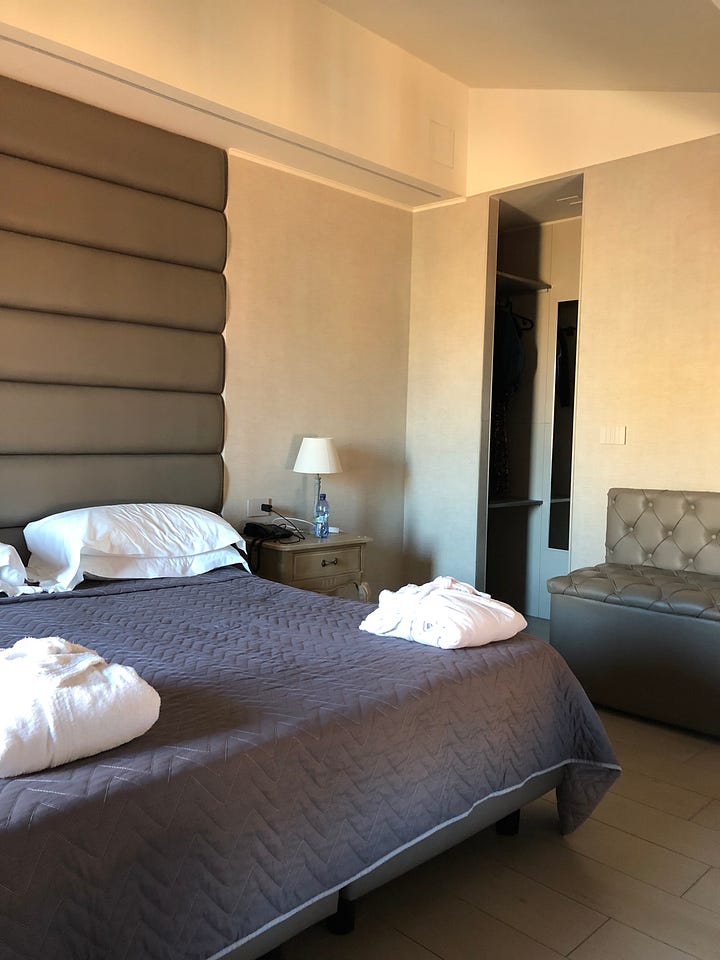
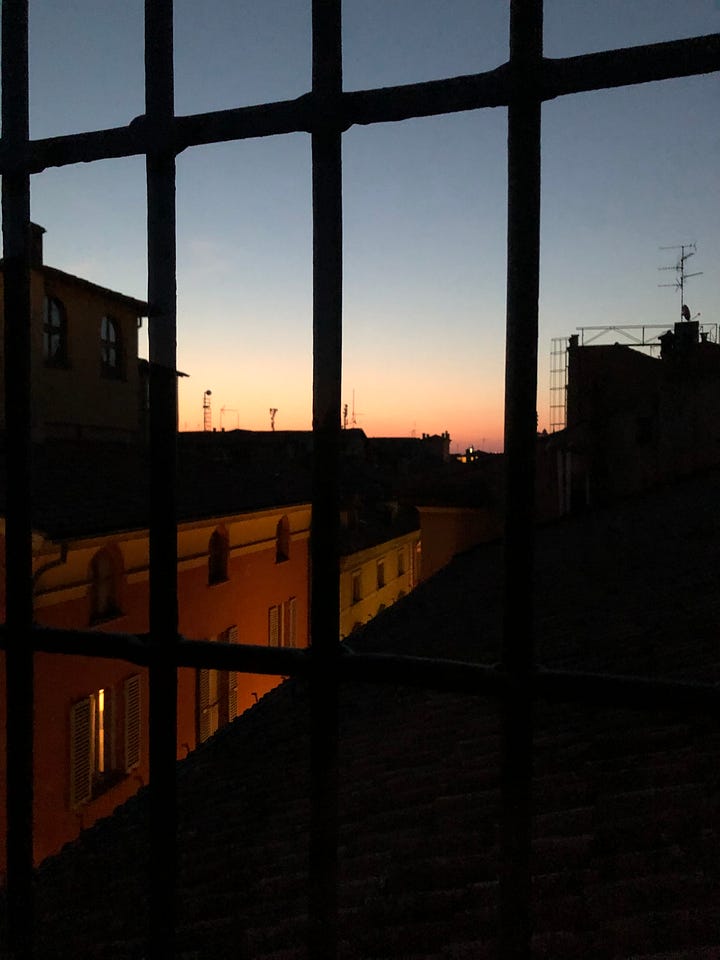
3. Case the joint
Another reason to follow rule #1: it allows you to get a feel for a place unencumbered. There are usually hotels scattered around the train station, and since the train station is where I frequently arrive (even when I haven’t actually taken the train, airport buses frequently drop you there) it can be tempting to just stay there. But train station neighborhoods are seldom where I want to spend my time. It’s true that they are no longer populated entirely by grimy pensiones aimed at backpackers and hookers; these days, they tend to be populated by pensiones aimed at backpackers and hookers and boring chain hotels (That said, I love the one in the Helsinki train station that is owned by what it probably the largest chain in Scandinavia. We are nothing if not our contradictions.)
Instead, I try to get a preliminary sense of the city before I commit. Doing a bit of reconnaissance not only gives me a quick feel for where the interesting things I might want to check out later are located, but also helps me scout whether the lodging is in a district whose market and cafés will quickly have me wondering if I can sublet my apartment back home for a few months, or the one where the sound of clubkids vomiting on the street at 5am is definitely going to wake me up.
Ask to see a room
It can feel weird, but it turns out that hotel staff are totally used to it: I usually ask to see a room before I agree to take it. In Bologna, this technique saved me from plunking down 200 euros for a weirdly shaped, windowless room with a disturbingly shiny bedspread. In Gdansk, it convinced me that it was okay for me to break Rule #3 and stay in the first place I came across, even if it was next door to the train station. And in Hamburg, it got me the pleasure of hearing a new trainee sidle over to her boss, gesture nervously in my direction, and whisper that there was “ein walk-in” at the desk.
Keep an open mind
I’ve written before about my reasons for staying in independently-owned hotels, so I won’t repeat myself here. But choosing in favor of the individual and the idiosyncratic has also meant adjusting my aesthetic standards. Or rather, expanding them. As a travel writer on assignment (and with someone else paying my expenses), I’ve had the pleasure of staying in some spectacularly gorgeous, crazily luxurious places, which has a way of ruining you when you actually have to pay for a place yourself. In those cases–before I started traveling unplugged–I tended to choose midrange hotels where the decor was inevitability bright, minimalist and with one or two design-y pieces that could allow me to trick myself into believing the room wasn’t entirely generic. This ‘style’– journalist Kyle Chayka first dubbed it ‘AirSpace,’ because it’s so prevalent among Airbnb apartments—is really no style at all, but it’s come to stand for tasteful, modern and clean, and I entirely bought into that.
But my budget for this newsletter sometimes doesn’t even cover airspace, and so I’ve often found myself in small inns and guesthouses. Sometimes, that’s meant rooms that I could tell were once considered elegant but are now about six decades out of date. Sometimes, it’s meant rooms that, with their mismatched bedlinens and weird sausage pillows, are a lot closer to the pensiones I used to stay in when I was a backpacking college student. None of them have been rooms I would have selected had I seen them online before. But they’ve all been clean, and with their individual personalities, they stick better in my memory than the modern places that were my usual choice.
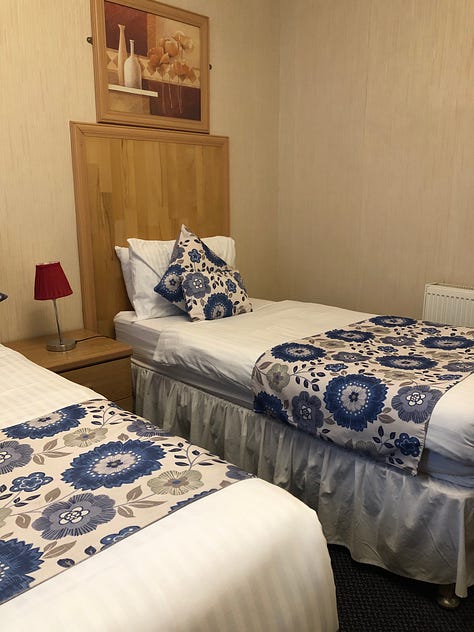
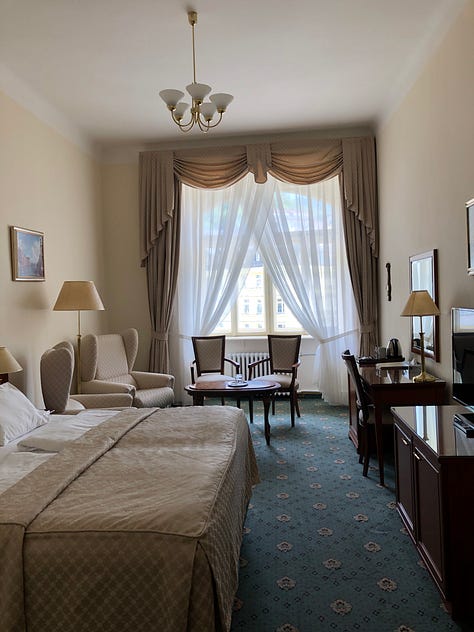
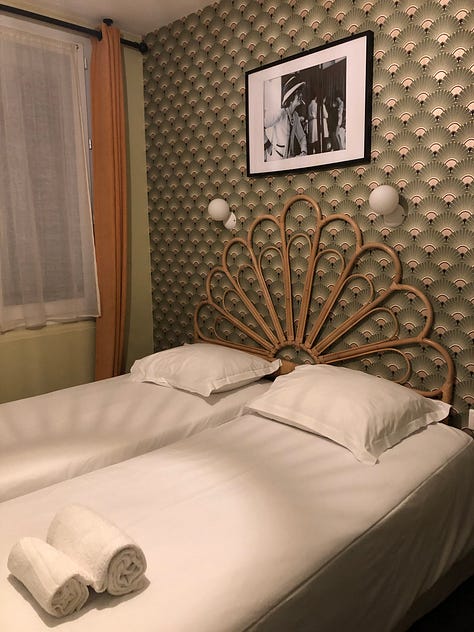
Embrace the search
Sometimes it happens: there’s no room at the inn. Or in the whole town. I’ve run into No Vacancy signs in Glasgow, in Biarritz, and along the Cotswold Way. But so far (and here I am knocking very firmly on wood), I’ve always found a workaround. Sometimes, that’s meant abandoning my rule about only staying in independent hotels. On a few occasions it’s meant putting together a hodgepodge of accommodations– one night in one place and the next in another. Once, it meant throwing myself on the mercy of a stranger. But if nothing else, checking out hotels, even several of them, even when their bedspreads are shiny and you’re feeling desperate, is still a good excuse to walk into a bunch of different buildings and talk to people. In other words, it’s all part of the story.
I think that’s it for now. Anything else hotel-related you’d like to know? Drop your questions in the comments below.



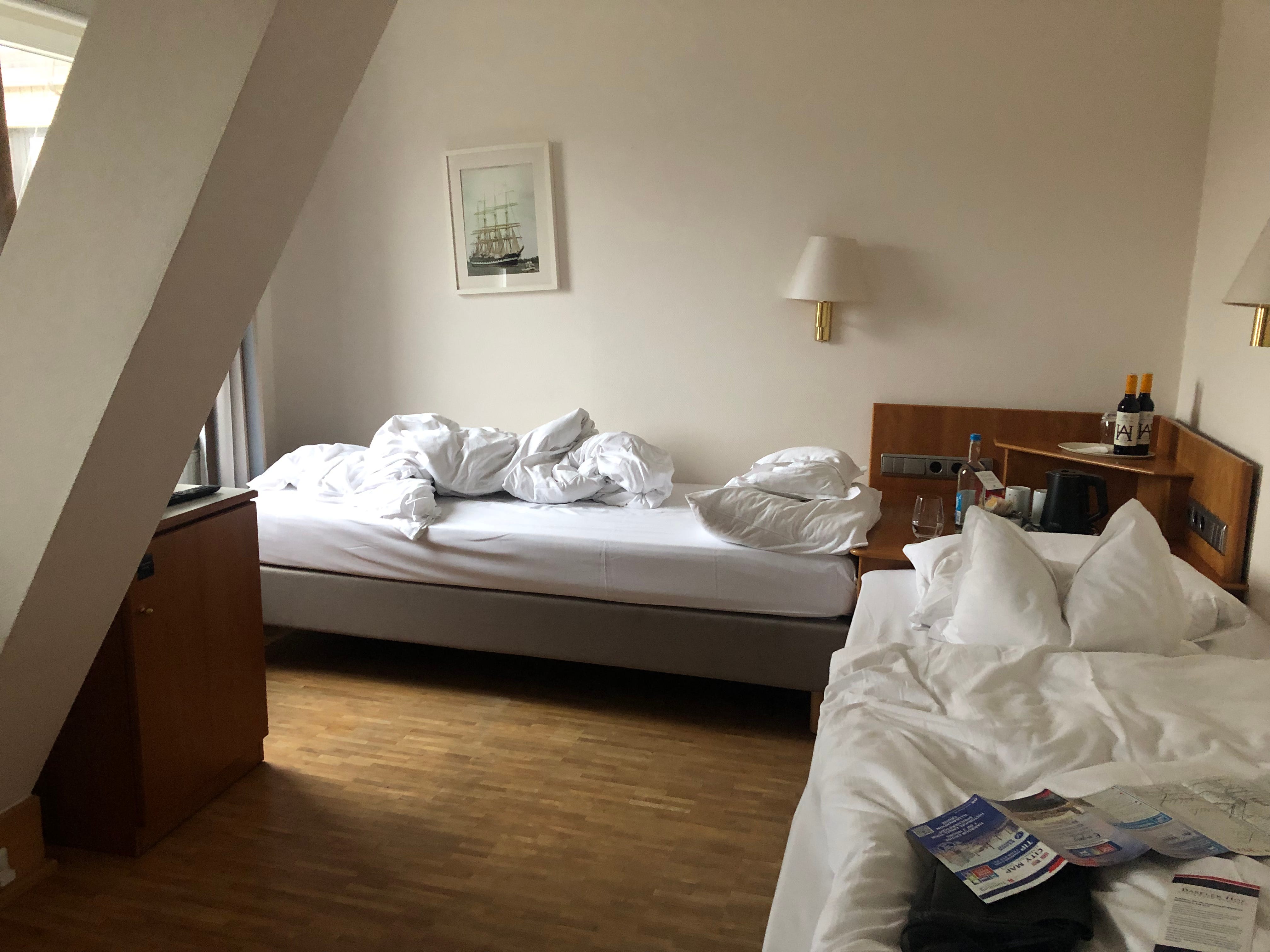

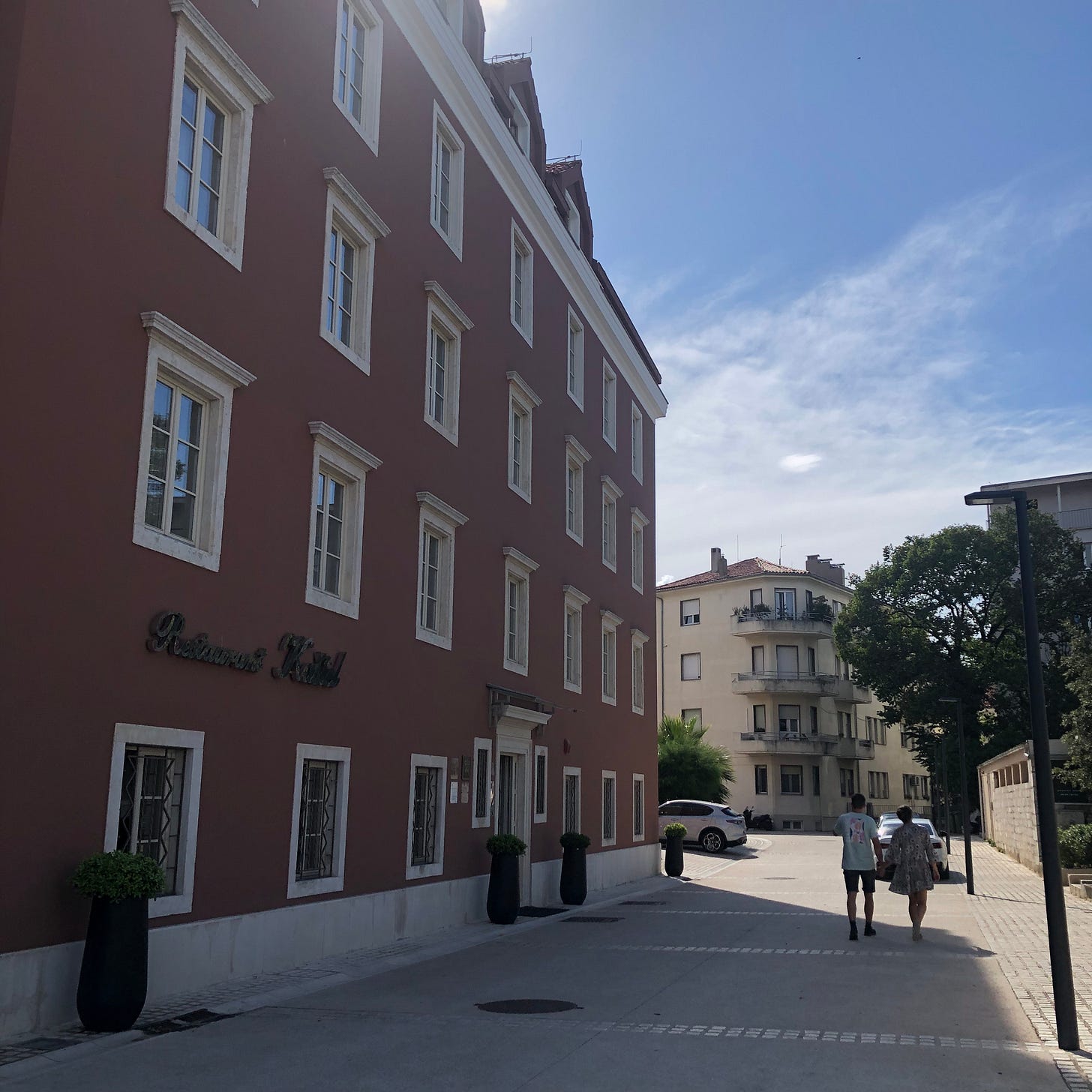
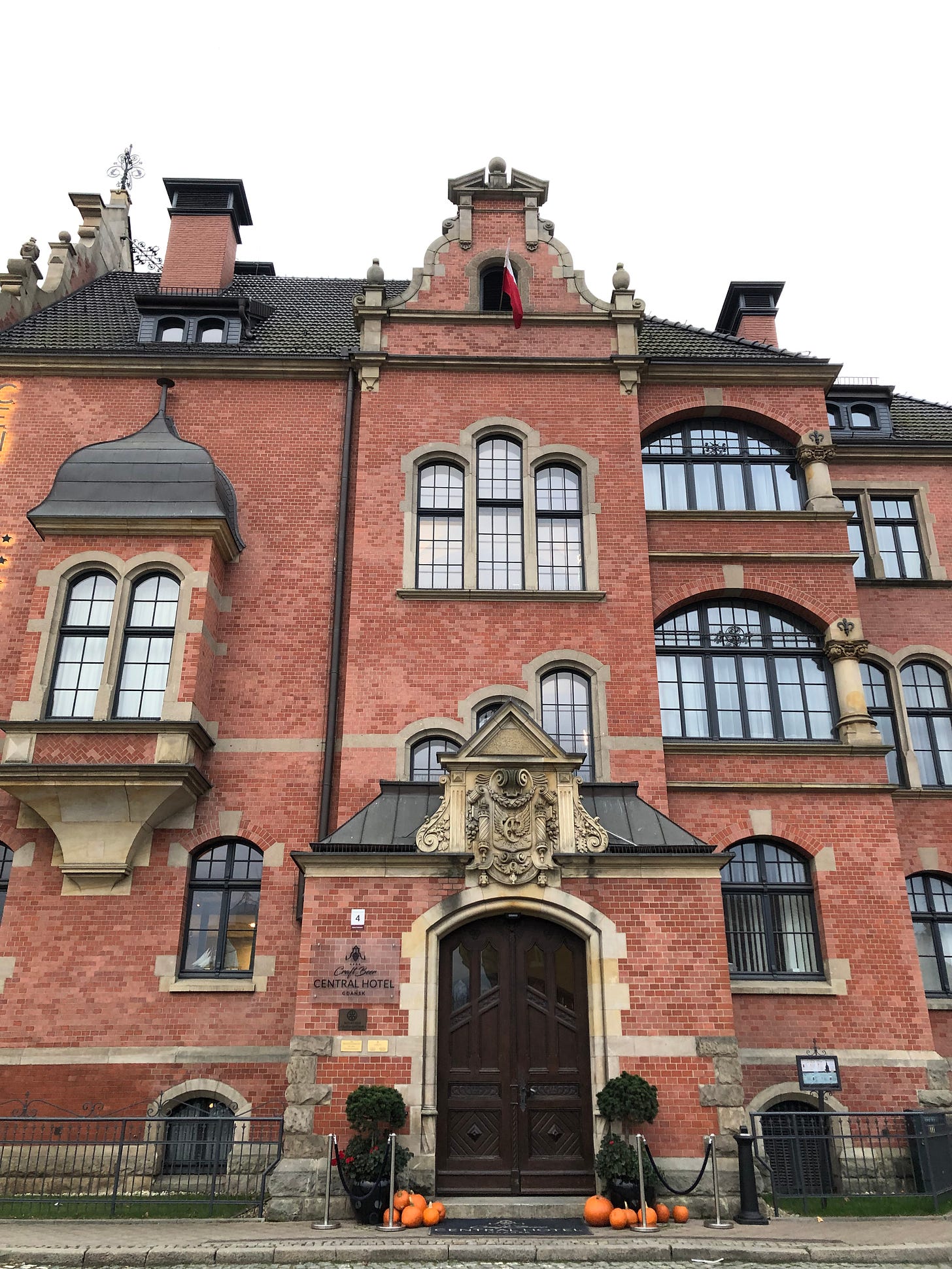
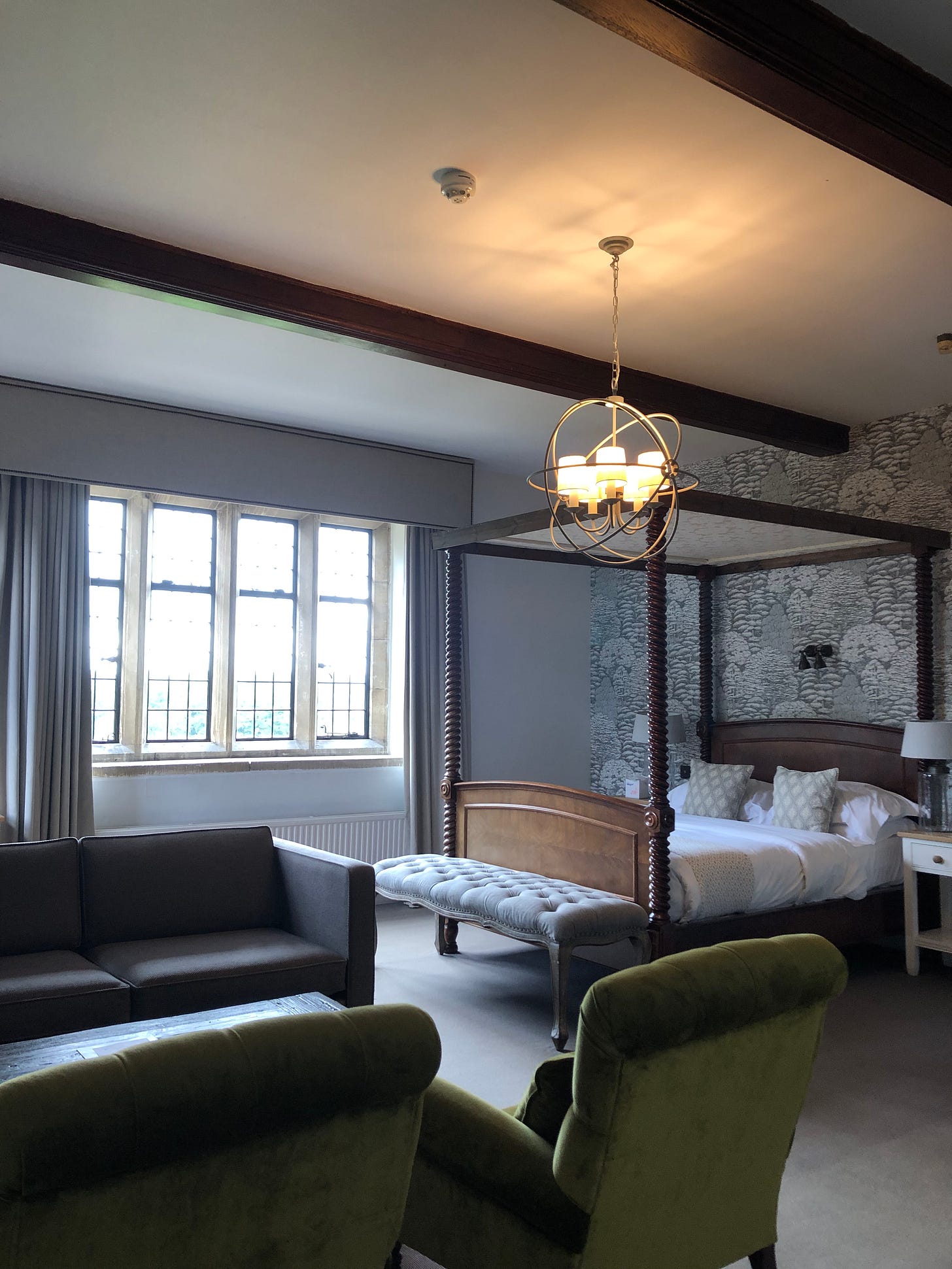
If you are nervous about doing this, you could practice this in your own town first. Go to a new part of town and try to find a hotel. If you find something - awesome - have a mini vacation. If you strike out you have the safety net of home.
Which neighborhood do you usually start in??